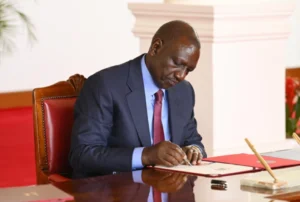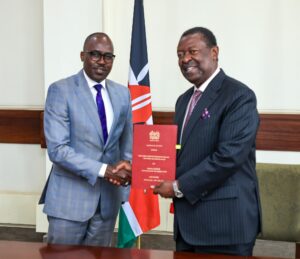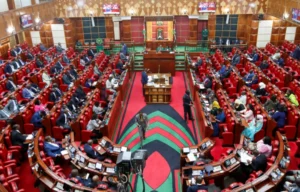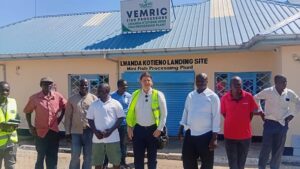Toxic Firefighting Foams to Be Phased Out
Through the project, airports will move from highly toxic foams to safer fluorine-free options without compromising safety.

The Football Kenya Federation (FKF) has asked the Confederation of African Football (CAF) to allow full stadium attendance instead of the current 60 percent limit. Photo/ Courtesy
By Juliet Jerotich
Kenya Among Beneficiaries of FIRE Project
Kenya is one of five African nations set to benefit from the Fortifying Infrastructure for Responsible Extinguishment (FIRE) Project, a joint initiative by the UN Environment Programme (UNEP) and the International Civil Aviation Organization (ICAO).
The project seeks to phase out toxic fluorinated firefighting foams used in airports and replace them with safer, fluorine-free alternatives. Alongside Kenya, Egypt, Ethiopia, Nigeria, and South Africa are also part of this global campaign.
A $82.5 Million Push for Safer Airports
The FIRE Project is valued at $82.5 million (Ksh 10.7 billion). It includes a $10 million (Ksh 1.3 billion) grant from the Global Environment Facility (GEF) and $72.5 million in co-financing from partners.
The program targets the elimination of foams containing PFAS (per- and polyfluoroalkyl substances). PFAS are hazardous “forever chemicals” linked to long-term environmental and health dangers.
According to GEF Senior Chemicals Specialist Anil Sookdeo, this initiative demonstrates how sector-focused actions can remove harmful chemicals from supply chains. He added that the effort could inspire wider adoption of PFAS-free firefighting foams globally.
Protecting People and the Environment
UNEP’s Industry and Economy Division Director, Sheila Aggarwal-Khan, emphasized that FIRE supports a safe, affordable, and accessible transition to clean alternatives. She stressed that protecting health and the environment can align with operational and business needs.
Through the project, airports will move from highly toxic foams to safer fluorine-free options without compromising safety. The plan includes safe removal of 4,500 tonnes of PFAS-contaminated materials from fire trucks and proper disposal of 130 tonnes of PFAS-based foam concentrate.
Dr. Mohamud Gedi, CEO of the Kenya Airports Authority, welcomed the move, noting that Kenya is taking a bold step in protecting communities and promoting a cleaner future.
Global Support for Safer Aviation Practices
ICAO Secretary General Juan Carlos Salazar reaffirmed the organization’s support in helping airports worldwide adopt sustainable firefighting solutions.
At the same time, Rolph Payet, Executive Secretary of the Basel, Rotterdam, and Stockholm Convention on Persistent Organic Pollutants, described PFAS as a “pollution time bomb” requiring urgent global action. He said the inclusion of PFAS under international conventions marks progress in protecting human health and the planet.
Turning Commitments into Action
The FIRE Project is implemented by UNEP, executed by ICAO, and funded by GEF. It is part of UNEP-GEF’s wider efforts to monitor and eliminate persistent organic pollutants (POPs) and reduce their impact on people and the environment.
Kenya’s participation in this project highlights the country’s commitment to safeguarding public health while aligning with global climate and environmental goals.





